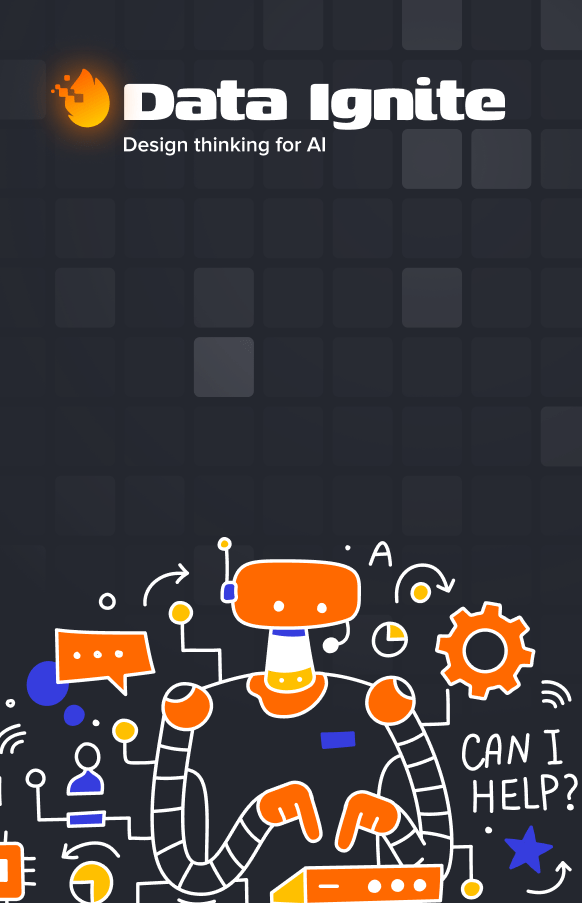Digital business transformation examples: 10 Real-World Case Studies
Feb 10, 2026 in Listicle: Examples
Discover digital business transformation examples and how AI, data, and strategy fuel growth with practical, actionable insights.
Not a member? Sign up now
An overview of the AI applications in the pharmaceutical industry
Paulo Maia on Jun 1, 2021
At NILG.AI, our motto is “Unlocking business capabilities using Data Intelligence”, since we see Artificial Intelligence as a powerful tool designed to maximize the potential of human activity.
A lot of fields have been taking advantage of the AI revolution creating more efficient systems able to get more accurate results while saving time and operation costs. This efficiency sounds good for business purposes (where time=money) but sounds even more valuable when humanity has to deal with emergencies (where time=lives), as the COVID-19 pandemic.
In this post, we will focus on how AI has been helping the Pharmaceutical Industry from drug research to drug adherence in patients, presenting and suggesting use cases to be applied. In the scheme below, you can a resume of the topics covered in each phase.

Discovering and developing new drugs is a process that can take years or decades of research work, having an average cost of around $1300 million. Two major consequences of these high costs are the lack of drug treatment programs in low-income countries and the lack of investment in treatments of rare diseases, such as Amyotrophic Lateral Sclerosis (ALS).
In the process of building drug molecules, there’s an intensive analysis of the molecules’ properties that is often done in a laboratory, which is highly time-consuming and expensive. This analysis includes the study of toxicity, bioactivity, solubility, permeability, affinity with the target, and so on. When a drug molecule fails in this analysis, the molecule should be replaced and the process is repeated.
Once the set of candidate molecules is very extensive, it’s impossible to test them all. This is where the AI comes into play, detecting lead compounds, predicting molecules’ properties, and optimizing their designs.
In Organic Chemistry, there’s the concept that compounds with a similar 3D structure may have similar affinity profiles. With this in mind, ChemMapper, a tool to explore molecule structures and predict their behavior, was created. ChemMapper includes a library with 300 000 chemical structures and 3 million chemical compounds with annotations regarding their interactions. When a new structure is submitted to the webserver, the algorithm searches for the most similar structures in the library, returning the probabilities of interaction between the query structure and hit compounds.
DeepAffinity is another tool created to predict molecule interactions. This tool uses interpretable deep learning, using RNNs and CNNs to predict molecule affinity based on protein sequences and attention mechanisms for interpretability.
Both tools required large volumes of data to increase their performance, however, DeepAffinity includes semi-supervised learning methods, taking advantage of available unlabeled data.

In 2014, the National Institute of Health (NIH), the Environmental Protection Agency (EPA), and the US Food and Drug Administration (FDA) organized the Tox21 Data Challenge to foster the implementation of virtual tools able to predict the toxicity of a molecule based on its physical features (such as weight and intermolecular forces). DeepTox was the winner of the challenge, with the development of a pipeline that normalizes the chemical representations of the compounds, extracts the chemical descriptors of the compounds, and predicts their toxicity using a Deep Neural Network.

Recently, biologists have been turning to AI methods to predict protein structures in a virtual manner, avoiding the costs and the efforts required in lab experiments. AlphaFold is one of the tools that have been providing the best results.
This is an open-source tool (available here) that predicts the 3D model of a protein based on its genetic code. Genetic sequencing, used for determining the genetic code, is a relatively low-cost method, hence, there’s a large data volume regarding the genomic field. This means AlphaFold took advantage of a low-cost method to avoid the use of cost-intensive experiments, accelerating and decreasing the costs of the research process.
From drug production to drug sales, there are a lot of logistics involved. This is a common issue for almost every industry, but it is especially relevant for pharma since the whole supply chain has to respect very restricted conditions regarding temperature, humidity, and light. How can AI help in pharma logistics? By validating compliance and by optimizing the workflow based on forecasts. Here are some examples of use cases in this field:
Usually, in production lines, quality control is a random process, i.e., some items are randomly selected and analyzed and their quality level defines the quality of the whole batch. However, this process does not guarantee that all items were packed in compliance. On the other hand, verifying the compliance of each item manually would be a very exhaustive and time-consuming process, in addition to being susceptible to human errors.
In this case, AI can be used to promote tasks’ scalability. This can be achieved by placing sensors on the assembly line to measure key features and detect non-compliant items. For example, the manual process of packing drug kits into boxes can be monitored by a camera to verify if all the items in the kit are present and in the right quantity.

After gathering this information and/or forecasting, an optimization algorithm is able to organize and define the best warehouse configuration to match product accessibility with their demand, increasing warehouse efficiency.
As said above, drug storage and transportation must be carried under restricted conditions, which increases the logistic costs. If a drug’s transportation takes longer than expected and the required conditions are no longer provided, the quality and usability of the product stays compromised, which leads once again to more costs. Therefore, planning and optimizing this chain is essential for keeping efficiency.
In this case, AI can be useful at three levels.
When a patient is under controlled drug treatment, it is very important to administer the correct doses at the right time. This precision on drug administration is even more essential when patients are participating in medical trials. When the effects of missing administration are not too risky, doctors rely on patients’ words. However, when it is crucial to follow the administration rules, patients are asked to go to the hospital to take their drugs.
To avoid needless rides to the hospital, while keeping monitoring drug delivery, we can use AI to build smart drug boxes. These boxes would incorporate an alarm, a camera, and a controlled delivery mechanism.
The alarm would be set to notify the patients at the administration time. The camera (RGB sensors or others) would include a facial recognition system to identify the patient and detect the action of drug-taking. Finally, the delivery control would drop the correct doses at the right time, avoiding the risk of overdoses. The box would either be connected to a hospital server to provide real-time reports or it would save the reports to be analyzed by the doctor in the next medical appointment.
Beyond medical trials, the smart box or similar products would be very useful for patients with memory loss or neurologic disorders, such as Alzheimer’s disease.

Research teams have been working on this issue aiming to find new strategies that assure drug effectiveness while using the minimal dosage per individual. This reduces toxic dosing, avoiding side effects in patients.
MIT Media Lab researchers studied dosage optimization for glioblastoma treatment, which is a malignant brain tumor that requires very aggressive treatment, and proposed an optimization model based on Reinforcement Learning (RL).
For this problem, an RL model was adapted to learn the best administration regimes, considering the combination of drugs to be administered, the dosage options for each of them, and the patient’s medical data. The algorithm chooses one of the following actions: initiate or withhold a dose of one of the drugs. In the case of initiating, the algorithm also decides if the entire dose will be administered or only a portion. At each action, another model predicts the change in the tumor’s size as a consequence of the action. When the size decreases, the RL model receives a reward. To avoid overdosage, the model gets a penalty each time it decides to administer all full doses.
In the medical trials, this method seemed effective since it achieved tumor reduction using smaller doses than traditional administration regimes.
There is a wide range of use cases regarding Artificial Intelligence and the Pharmaceutical Industry, placing AI as an indispensable tool in current pharma workflows.
AI is not only useful for reducing costs, but also for speeding up research pipelines, and fostering quicker responses to healthcare needs.
Notice this is just another industry example where AI plays a crucial role. To discuss AI potentialities for this and other industries, feel free to contact us.

Book a meeting with Rafael Cavalheiro
Meet Rafael Learn MoreLike this story?
Special offers, latest news and quality content in your inbox.
Feb 10, 2026 in Listicle: Examples
Discover digital business transformation examples and how AI, data, and strategy fuel growth with practical, actionable insights.
Feb 6, 2026 in Resources
Discover the 12 best AI tools for small business success. Our guide covers strategic insights, pros & cons, and how to choose the right AI partner.
Feb 3, 2026 in Guide: How-to
Master customer retention rate calculation with this practical guide. Learn the formulas, see real-world examples, and get actionable tips for business growth.
| Cookie | Duration | Description |
|---|---|---|
| cookielawinfo-checkbox-analytics | 11 months | This cookie is set by GDPR Cookie Consent plugin. The cookie is used to store the user consent for the cookies in the category "Analytics". |
| cookielawinfo-checkbox-functional | 11 months | The cookie is set by GDPR cookie consent to record the user consent for the cookies in the category "Functional". |
| cookielawinfo-checkbox-necessary | 11 months | This cookie is set by GDPR Cookie Consent plugin. The cookies is used to store the user consent for the cookies in the category "Necessary". |
| cookielawinfo-checkbox-others | 11 months | This cookie is set by GDPR Cookie Consent plugin. The cookie is used to store the user consent for the cookies in the category "Other. |
| cookielawinfo-checkbox-performance | 11 months | This cookie is set by GDPR Cookie Consent plugin. The cookie is used to store the user consent for the cookies in the category "Performance". |
| viewed_cookie_policy | 11 months | The cookie is set by the GDPR Cookie Consent plugin and is used to store whether or not user has consented to the use of cookies. It does not store any personal data. |